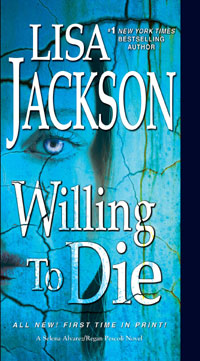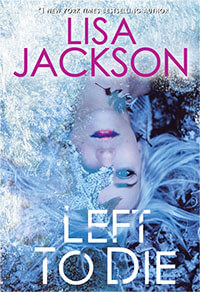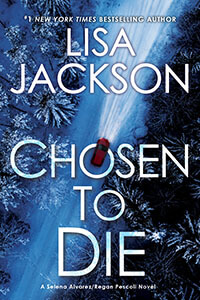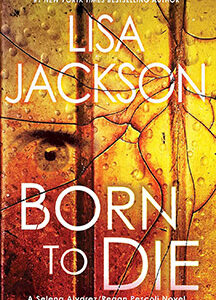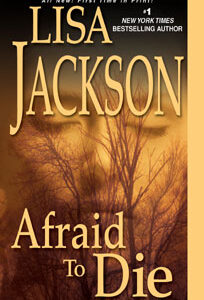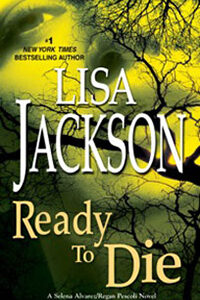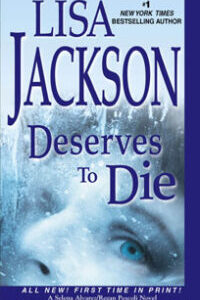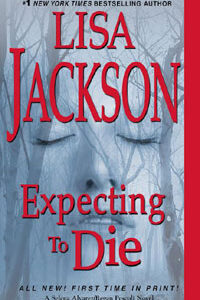PROLOGUE
Near San Francisco, California
July 4th
Dead.
Her son was dead!
Cold to the bone despite the summer’s heat, she couldn’t breathe, had to gasp for air.
Her throat clogged with grief, pain and a deep, intense fury.
Standing alone in this cemetery where grave stones stood in sentry-like rows, she clenched her fists and wanted to rail to the heavens where, across the night sky, fireworks burst in thunderous booms and great sprays of light.
The demons that had tormented her mind hadn’t lied.
As bitter as the harshest Montana winter, desperation cut through her heart. Blinking against tears, she dragged her gaze from the inscription on the small marble stone at her feet.
A low-lying fog was rolling in, swallowing the lights of the city situated on the far shore of the bay. The iconic Golden Gate was partially obscured, only the bridge’s tall towers knifing through the fog to a black sky glittering with stars, a backdrop to the fireworks. She watched another shooting star rise high, streaks of fiery glitter bursting then fizzling before her eyes. For a few awe-inspiring seconds, the pyrotechnics bedazzled then faded, their short life spans over in quick, brilliant bursts. Over almost before they’d begun.
Like her son’s brief life.
Her heart tugged so painfully she fell to her knees. She’d known this was possible, perhaps even probable, that he’d died, but throughout these past lonely years, she’d held out a glimmer of hope that he’d survived, that they would be reunited, that she would feel the warmth of his arms around her neck as she held him close. “Oh, baby,” she whispered.
Once again she turned her attention to the small gravestone, a tiny marker in a sea of larger, more elaborate tombstones. In various shapes and sizes, some tall, some ornately carved, others more plain, the headstones stood unmoving, hulking along the slope that curved downward to the city and the dark, black waters of the bay.
Why?
Oh, God, why?
Closing her eyes, she drew in several deep breaths.
Don’t question. It is what it is.
More importantly: What are you going to do about it?
Jaw clenched she thought of those who had wronged her.
Those who had used her.
Those who had abused her.
Those who had taken out their animosity against her on the innocence of her child.
Still on her knees, she reached forward and traced the dates inscribed on the frigid stone with the tips of her fingers. Barely four years from date of birth to date of death.
Her heart cracked with the pain. “Oh, honey,” she murmured her throat catching as thoughts of that unlikely birth swirled in her brain. The agony of labor, the fear of the unknown, the rush in her blood at hearing the newborn’s cry and then the emptiness as her son was stolen from her, taken from that isolated delivery room. She’d heard the whispers in the hospital.
“ . . . deeply disturbed.”
“. . . mentally unstable.”
“. . . severe psychosis.”
All spoken in hushed tones. As if she couldn’t hear.
And now this.
Her jaw clenched. She squeezed her eyes shut and brought to mind the manipulators who had made the decisions, those who had determined that she was “unable”, or “unwilling,” or “incapable.” More words she wasn’t supposed to hear. And then there was the harshest of all: “Unfit.” Her teeth gnashed as she remembered the callousness with which that word was tossed about. How would they know? Yes, she’d been unstable, she knew that, though the word “insanity,” which she’d heard throughout her life surely was extreme. She wasn’t “insane,” and never had been.
Especially not tonight.
No, as the rockets screamed into the sky, blooming in wild explosions of color and light, she’d never felt more sane. She’d spent so much time searching for her son only to find him buried here – that bit of hope she’d felt at the thought of reconnecting with him, of seeing him, of explaining to him and holding him . . . that tiny flame of expectation was now dead. Extinguished. And in its place rose a new emotion, raw and acrid.
Vengeance.
Swallowing the lump in her throat, she gazed at the small grave marker again and now, dry-eyed, thought of what lay ahead. “They’ll pay,” she promised her child, hoping that he would somehow know. Her fingers twisted in the drying grass of the hillside, the long blades and dandelions that were tucked close to the marker and had escaped the gardener’s mower clutched in her fingers. “Every last one of them. I will hunt them down and, I promise you, they will pay.” In her mind’s eye she saw them all. As she pushed herself upright, a series of smaller fireworks exploded over the bay, flashes of kaleidoscope colors disappearing in fading fingers until the darkness was unbroken again.
She knew who they were, those who had betrayed her.
She knew where they lived.
She also knew she had the element of surprise on her side.
And she would destroy them all.
Tossing the dried weeds from the fingers, she dusted her hands.
She had a mission.
As she headed down the hill, stepping carefully between the marble and granite sentinels of the dead, she plotted just how to wreak her vengeance against them.
A sense of cold satisfaction displaced her desperation.
She turned at the locked gate, then climbed atop the wrought iron fence and looked back over her shoulder. Spying the tiny gravestone she whispered, “I love you,” and waited for an answer that didn’t come.
Armed with her new purpose, she hopped lithely to the ground, shoved her hands into the pockets of her jacket and felt the cold reassurance of the Beretta Pico, a small .38. Jaw set, she strode through the darkness, avoiding streetlights as the explosions burst overhead.
No one would stop her now.
No one would dare.
San Francisco, California
Six Months Later
Chapter 1
Brindel wanted a divorce.
Correction: She needed a divorce.
From Paul Latham . . . make that Doctor Paul Latham. He always did.
Self-important bastard.
Glancing out the bathroom window to the night beyond, the lights of the city pinpoints, the view even from this room stunning, she was ready to give it all up. But of course, Paul wouldn’t go down without a fight. Not that it was about her or love. She actually laughed at that ridiculous thought, then took a sip from her second– or was it her third?– glass of wine. Didn’t matter. She finished the last drop, considered pouring another, then decided against it, leaving the glass on the marble counter. Whatever love she and Paul had shared nearly two decades before had shriveled and died long ago, like a worm on a hot sidewalk. All that was left was a hard, heartless shell of their marriage. No, the reason he would fight her was that he wasn’t a man who could lose. Not in his life, not in his marriage, not in his job and especially not to her.
She shook her head. She’d been such a fool. She’d suspected early on, and discovered a few years into the marriage, that he’d expected her to raise his two sons, Macon and Seth. Which she had. Both disgustingly like their father.
Angrily she swiped off her makeup, scrubbing carefully though she noticed a few irritating and stubborn lines on her face that needed a good shot of Botox. Afterward, she massaged cream into her skin, then brushed her hair until it gleamed. It now was blonder than her natural shade and streaked to hide any hint of gray, then cut in the most fashionable style money could buy, perfect layers framing her face to fall softly to her shoulders.
A glimpse of her closet showed off racks of shoes–heels, pumps, sandals, running shoes, a pair for every occasion displayed on lighted, shelves that were slightly elevated. Neat rows. Each pair worth a small fortune.
How had she thought footwear costing thousands was worth the price of this hollow marriage? Along with the shoes, deeper into the wide walk-in were racks and racks of dresses, slacks, suits, sweaters, you name it, all designer, all expensive, all hung neatly, the gowns encased in plastic to protect them, purses, too. From the corner of her eye she caught a glimpse of the white gown she’d worn at her wedding . . . well, her second wedding if anyone was counting . . . and she saw the sparkle of beads, the cut of French lace, and cringed inwardly as she remembered wearing that gown and feeling as if her life, finally, had turned a favorable corner as she’d swept down the aisle to meet her handsome, successful groom. Despite his flashes of anger while engaged, his need to dominate, the warning knell from her sisters, she’d been determined to give herself and her toddler daughter a new, “perfect” life.
She’d had no idea how wrong she would be.
And now . . . now she needed to do something about it. Before it was too late. As it was, she was already over forty, for God’s sake, her kid nearly grown. She stepped out of her robe and let it puddle on the floor. Turning sideways to the full-length mirror, she noted that her belly was flat and hard, her breasts high with the help of surgery and enhancements, her nipples pert and dark, her legs long and lean, even showing a bit of muscle, her posture erect. She was still very attractive, could compete with women ten, maybe even twelve years younger than she . . . well, maybe. If she had to. Not that she was looking for a new man. No way. At least not until she was single. She didn’t want the hint of impropriety on her part. She’d already spoken to one of the best lawyers in town, she just hadn’t pulled the trigger and filed for divorce yet.
“Tomorrow,” Brindel said, mouthing the words as if her husband who was in the next suite could hear her.
More than slightly buzzy, she finally took out her contacts and finished getting ready for bed, which was basically undressing to slip between the soft sheets completely naked, a practice her husband had once found exciting, then disgusting, then totally ignoring. That had been before the remodel of the second floor into two master suites. His and hers. It had seemed perfect at the time, but now was claustrophobic. Silk wallpaper, coved ceilings, crystal chandelier, huge four-poster bed and private bathroom with its grand walk-in closet, all part and parcel to her jail cell.
And Brindel needed freedom.
More than anything else.
She’d only stayed as long as she had because of her daughter . . . and now . . . well . . .
She slid beneath the thick duvet, felt the polished cotton smooth against her skin and turned off the bedside lamp. Her appointment was at nine, when she was certain her husband would be in the midst of his rounds at the hospital attached to the medical school, a short walk through the park from this house. She’d tell her attorney to file the papers and then let the chips fall where they may.
Smiling at the thought that she was finally doing something, well, actually the one thing he would abhor, she burrowed under the covers and drifted away, her dreams lulling her only to be interrupted by . . . what? The sound of footsteps? Oh, God, surely Paul wouldn’t try to come into her room and slide into her bed . . . Physically shuddering at the prospect, she opened an eye to darkness, the room lit only by the glow of the bedside clock.
Was that breathing she heard? Soft and low over the pounding of her racing heart?
She swallowed back her fear and stared, eyes narrowing, fingers curling at the edge of the duvet.
For a second she thought she saw movement – a shadow crossing in front of the armoire – but realized it was the mirror mounted over the antique, reflecting the sway of branches from the window on the opposite wall.
Don’t be neurotic. You have one more night and then you start the fight for your freedom . . . and half of Paul’s estate. He owes it to you for giving him almost twenty of your best years. In her mind she calculated what she might receive, less attorney’s fees. Three million? Maybe four? She’d earned every penny of it being married to the jerk-wad.
And it would be enough to last her the rest of her life.
Slightly calmer, she still listened for any sound that he might be stealthily walking down the hallway to her bedroom door, but she heard nothing . . . all her imagination. Her nerves were strung tight, that was it. Because of her meeting in the morning. She was alone. Safe. In her own damned bedroom. Closing her eyes again, she started to breathe easier again.
And there it was.
The whisper-soft scrape of a footstep. Then another.
And a new smell. Musky and male and . . .
Brindel’s eyes flew open and she gasped, saw the muzzle of a gun just before it was pressed to her forehead.
What??? NO!
She opened her mouth to scream.
Her attacker pulled the trigger.
An ear-splitting blast.
Then nothing.
#
“No, no, noooo!” Ivy threw a hand over her mouth to keep from screaming.
The carnage was horrible. Mind-numbing.
Backing up quickly, the image of death seared forever in her brain, she wondered how everything could have gone so terribly wrong.
She knocked over a small table near the door, a vase with a single rose sliding to the floor while on the bed . . . oh, sweet Jesus, on her mother’s feminine bed . . .
Death.
A small dark hole in the smooth forehead, blood coagulated around the entrance room, spatters of red on the creamy skin. And the eyes, God, her mother’s eyes, sightless and open, seemingly accusing.
Blood on the ruched duvet and the lampshades, flecks on the thick white rug covering the ancient hardwood. “Oh, God, oh, God, oh . . .” Her stomach threatened to heave as she turned and fled, down the narrow hall with its long runner, pictures of the family placed perfectly on the hallway . . . and to the next room and the second body, lying face down, the back of his head a mangle of blood, bone and brains visible through a huge gaping wound that had destroyed the graying hair that had once been thick, his pride and joy. She backed up, ran into the wall, banging her shoulder as she raced through the familiar rooms the acrid cent of blood chasing after her, the horrid images burned in her brain.
As she ran Ivy retched, threw a hand over her mouth and tasted blood. Salty . . . or was that her tears?
Get out. Get out, now! Don’t step in any of it, don’t get it on your shoes. Run like you’ve never run before!
Images blurred in her vision, the old globe in the library, the books, never read but stacked in neat rows to the high ceiling, the mullioned windows overlooking the city, lights winking through the beveled glass. The banister–don’t touch it!–smoothed by over a century of hands sliding along it.
She was gasping as she hurried down the runner of the steps, her feet flying, her hair streaming behind her as she reached the marbled foyer—NO! Not out the front! What are you thinking? There could be people on the street. Old man Cranston walking his aging dachshund, or the Miller girl who was always running the streets at night, or a stranger . . . no, no, no! The back. You need to go out the back door, through the back yard, to the alley. Then, if no one’s around, cut through the park. Fast. Run, damn it!
She skidded around the bottom of the staircase and through a short hallway toward the rear of the old home.
A creak in the floorboards overhead made her stop short.
Was someone up there?
Someone still alive?
Or the killers?
Who? Who?
Holding her breath, she strained to listen over the frantic trip-hammering of her heart.
Was that a footstep?
A noise on the stairs?
Oh. Dear. God.
She didn’t wait to find out, but flew through the darkened kitchen, her knee banging against a bar stool near the center island. “Ow!” Cutting off the scream, she saw the knife block resting on the marble top. Without a second thought, she yanked the butcher knife from its slot and raced to the back door.
Another creak on the stairs.
Shit!
Fear raced through her bloodstream as she found the door knob, and yanked on the door, the reflection of her own silhouette visible in the glass panels, the cold of winter rushing inside. She thought saw movement behind her–the killer!
Oh, Jesus. No!
Ivy raced down the back porch, slipping on the last step.
She caught herself, but dropped the knife. It clattered against the brick path and she left it, flew through the back gate and didn’t bother to stop as the gate slammed closed behind her. Running down the narrow, crumbling alley for all she was worth, she splashed through a puddle and scared a cat hiding near the garbage cans. It hissed and backed away, white needle-sharp teeth visible in the dim light of a security lamp on the neighbor’s back porch.
Another screech.
The gate opening on its rusting hinges?
The damned cat scared again?
The killer chasing her down?
She didn’t bother to look over her shoulder. Panicked, she sped headlong into the street.
A passing car honked and swerved, barely missing her, street water spraying beneath screeching tires.
She stumbled. Caught herself. Ran.
“Idiot!” a deep male voice proclaimed rolling down the window of his white Volvo to make certain she heard.
She didn’t care. Reeling back from the street, she kept going, scrambling away.
Adrenalin propelling her, she raced between two parked cars and along the sidewalk. She didn’t quit running at the gates of the park, but sped inside. Heart in her throat she flew along the path. At a bend in the sidewalk, she veered into the undergrowth, away from the pools of light cast by the lampposts that lit the groomed path. Crouching, breathing hard, she scrabbled into rain-drenched thickets, where trees, shrubbery were her salvation. Her skin prickled. Rain slid down her bare head and under the collar of her jacket. She barely noticed, her fear was so intense, the images of the dead bright behind her eyes.
Don’t panic.
But it was too late. Rational thought had disappeared, chased by pure terror. Was it her fault? When she’d agreed . . . ? How the hell had this happened?
She swallowed back a dose of guilt and took stock of her situation.
Ivy had played in this park as a child, knew all the hiding spots and thought she might be safe, if just for a few minutes, long enough to catch her breath and gather her wits.
What now?
Where could she go?
Where could she hide?
Teeth chattering, body trembling, she tried and failed to dislodge the bloody images of the dead bodies from her mind. Her parents. Slaughtered in their beds. Unsuspecting. The brutality and unfairness of it all was too much and she started to cry, tears burning down her wet, cold cheeks. This wasn’t supposed to happen, she thought wildly. No, not this. Not now. Not ever.
Calm down. Just calm the hell down!
She couldn’t. Bile filled her throat. Her insides revolted. She threw up violently, the contents of her stomach emptying onto the bark dust by a thick-leaved rhododendron bush. Then again. This time bile came up and after wiping her nose and mouth with her sleeve, it was all she could do to prevent herself from dry-heaving. She scuttled backward, deeper into the bushes, distancing herself from the sour pool of vomit, creeping over rocks.
Hiding here was no good.
She’d be found soon.
Those who had killed might still be looking for her.
There was a good chance, she knew, that she was the ultimate target.
With that sizzling thought, she rimmed the park, keeping near the brick fence until she reached the far side. From her hiding spot, she had a clear view of the central fountain, lights directed at the rushing water tumbling over jagged rocks. No one stood gazing at the wet stone, no one appeared on the fringes of light.
And yet she felt the weight of someone’s gaze, someone who was hiding just like she, someone who would think nothing of taking her life.
Get a grip. No one’s there.
Think.
Come up with a damned plan!
Her insides quivered and she nearly jumped out of her skin as the leaves rattled nearby. Biting back a scream, she scooted closer to the fence as a fat raccoon waddled from the cover of the bushes and padded around the base of a lamp near the path. She let out her breath and tried to pull her thoughts together. So far, it seemed, she hadn’t been followed. The sounds of the city surrounded her, the even rumble of engines and whine of tires as traffic passed on the other side of the brick wall surrounding this block of greenery. Cigarette smoke drifted to her nostrils and she heard muted voices as people passed on the sidewalk on the other side of the brick barrier separating the park from the rest of San Francisco. A quiet cough. A far-off bark. In the distance a fog horn moaned. Yet no hurrying footsteps running toward the park.
Please, God . . .
Attempting to calm herself, to slow her racing heart, to force the fear back into the farthest reaches of her mind, Ivy frantically reviewed her options. She knew she had to escape. Now!
Going back to the house was out of the question.
Calling the police would be a major mistake.
Notifying anyone she knew would only put her in more jeopardy.
She could trust no one. Not a soul.
It wasn’t supposed to happen this way! When she agreed to . . . oh, God. Her mother was dead. Killed.
Hands shaking, she slipped her fingers into the pocket of her jacket, felt her phone and the wad of cash that she’d hidden there. Four thousand dollars. Enough to escape and disappear.
Footsteps sounded. Someone moving fast.
Hurrying through these blocks of greenery.
Her heart lurched.
She bit her lip, trained her gaze toward the sound.
Her ears and eyes straining, her senses on alert, she heard the rapid footfalls, then spied a runner cutting through the park, slim and sleek, a man in reflective running gear was striding easily, his breath fogging, ear buds visible as he flew past.
She couldn’t stay here any longer.
It wasn’t safe.
She was a sitting duck.
Ivy slipped through the dense, wet foliage, easing her way to the entrance on the far side of the park and out. Flipping the rain-soaked hood of her jacket over her wet hair, she walked rapidly through the city blocks where skyscrapers knifed upward into the dark sky, patches of warm lights visible in a few apartment windows, security lights in businesses.
By instinct, she headed downhill, toward the waterfront where, she hoped, she’d find a way to leave this city and her painful past forever. A bus out of the city. That’s what she’d do. Find a bus and buy a one-way ticket.
She didn’t care where.
Just as long as it was far, far away.

